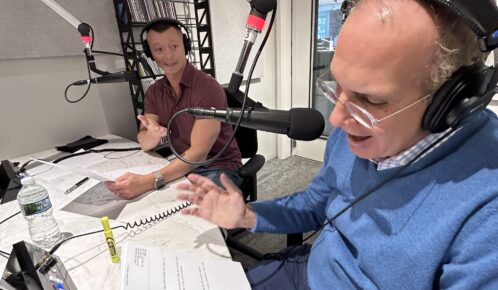You may have to go to court for a car accident if you can’t reach a settlement agreement with the insurance company. The majority of car accident claims settle out of court, but there are some circumstances that lead the case to trial. It’s important to understand the situations warranting a trial for car accident cases and the process of going to court.
Table of Contents

Reaching a Settlement With Your Insurance Company
After a motor vehicle accident, you wonder if you have to go to court for a car accident. In most cases, you won’t need to go to trial. A majority of car accident cases settle during the claims process by negotiating with insurance companies.
In no-fault states, insurance companies automatically pay out and cover various damages, regardless of who was at fault for the accident. However, in fault states, liable parties will need to cover damages.
In any car accident case, you should let your insurance company know about the accident. You can then proceed to file either a first-party claim via your own insurance company or a third-party claim against the other party’s insurance carrier. The next step would be to negotiate a claim to recover the damages sustained because of the other driver’s negligence.
Under certain circumstances, you may need to take your case to trial if you are unable to reach a favorable outcome during the claims process.
Do You Have to Go to Court for a Car Accident Settlement?
There are two specific situations when you may have to go to court for a car accident settlement, including:
The Liable Party Is Uninsured
Although drivers generally must carry a minimum amount of insurance in every state, some may not have sufficient coverage. In these instances, because you’re unable to file a third-party claim against the driver’s insurer, you may need to file a lawsuit in lieu of a claim.
If you take the liable party to court when he or she is uninsured, this can lead to punishments, such as punitive damages, that set an example and help deter the defendant from driving uninsured in the future. However, you may not get the kind of settlement you initially sought because of the lack of insurance payouts, unless the liable party has enough funds to cover the damages without insurance.
Both Parties Can’t Come to an Agreement
Sometimes filing a claim against insurers won’t result in a settlement because the liable party’s insurance company refuses to offer a reasonable amount of damages. The reason for this refusal may stem from the insurer’s attempt to claim that the victim is the one who’s liable for the accident and injuries. Insurance companies will look for any valid reason they can find to either reduce the amount of compensation they have to pay out or deny claims entirely, particularly when car accident cases involve large settlements.
If an insurer refuses to pay out a claim, and you still believe that you have the ability to recover a full settlement, you may opt to take the case to court in front of a judge or jury. The court can then determine who was at fault and award or deny compensation.
Taking Your Car Accident Claim to Court
When going to court for a car accident settlement, there are things to consider as you prepare your case. The following are a couple of considerations to keep in mind if you want to bring your case to court.
Recoverable Damages in Car Accident Lawsuits
Following an accident, there are multiple damages you may be able to sue for in a car accident lawsuit. These damages could include a combination of economic, non-economic, and punitive damages.
Economic damages include medical bills, lost income, lost earning capacity, and other direct financial losses resulting from your injuries and the liable party’s negligence. Meanwhile, non-economic damages account for the pain and suffering that victims and their loved ones experience after an accident, such as physical pain and psychological distress.
In rare instances, punitive damages may also come into play. The intent behind these damages is to punish defendants for engaging in egregious negligence or malicious behavior. For example, a drunk driver could cause an accident while knowingly traveling at speeds far surpassing the posted limit, potentially warranting punitive damages that prevent this behavior from reoccurring.
Hiring an Attorney
While you might be able to handle minor car accident claims on your own when damages are minimal, you run the risk of compromising your case and missing out on compensation if your claim involves larger settlements and winds up going to court.
If you want to file a claim or lawsuit against a negligent driver, you may benefit from working with an experienced car accident lawyer to help handle your case. The right attorney can negotiate with insurance companies and take your case to court if necessary.
An attorney will also understand the legal process and how to proceed with your case, including information about the jurisdiction for a car accident lawsuit and how that will affect your case.
Your lawyer can also calculate the total amount of compensation you’re able to recover and work to recover it from liable parties. In the process, he or she can file a claim or suit well before the statute of limitations runs out for your case, which could otherwise leave you without compensation when you deserve it.
The likelihood of a car accident case going to court is slim, but it can happen. If an insurance company refuses to settle or the liable party is without insurance, you may ultimately need to take your case to court to recover compensation successfully.



